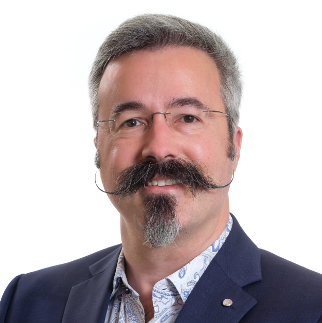
Workshop Topic Detail
Secrets of Universal Design for Learning for Community and Technical Colleges
To be successful and reach their potential, it is important that learners have access to quality and equitable education. This workshop shares how to support a diverse range of learners, especially the under-resourced students who come to us from a variety of socio-economic, cultural, and community backgrounds. During this hands-on workshop for instructors, support staff, and administrators, participants examine four mission-driven ways to reach out to underserved learner populations.
Learn how to lower access barriers in your courses and learner interactions, foster students’ sense of belonging, and create learning and support environments across campus that welcome learners across the ability and access spectrums.
By the end of this workshop, participants know or will be able to:
- dentify the core needs of under-resourced learners along the vectors of safety, time, and belonging.
- Select, predict, or draft a specific access expansion in the work that you do with learners.
- Create and implement a classroom or interaction design (e.g., a rubric, activity parameters, a welcome message) that addresses barriers for underserved learner populations using adaptable curriculum, inclusive engagement techniques, or learner collaboration with peers, instructors, or the community.
- Analyze and assess a single learner interaction through the lens of the universal design for learning (UDL) framework.
Plans for Audience Participation and Interaction:
This interactive workshop is intended to be a guided-practice exploration of small-scale UDL applications. In addition to the core accessibility practices of verbal image description, alternative text labeling, and text-based side-conversation channels, the facilitator incorporates several multiformat engagement strategies:
- Built-in time for reflection and structuring. Participants have reflection/thought times built into segments throughout the workshop, coupled with dedicated collaboration time for each segment of the project-plan activity. Participant notes can take the form of private comments/notes, shared comments in a Google doc, or sharing via the in-room microphone.
- Participant-led application. For each of the three key principles of the UDL framework, participants engage collaboratively to build one individual-level interaction with UDL characteristics.
- Post-session details.
The workshop is intended to be an intermediate-level use-them-tomorrow examination of the three core principles of UDL. Handouts, white papers, and a bibliography serve to guide further practice beyond the workshop session.
Facilitator(s)

Dr. Thomas J. Tobin helped found the University of Wisconsin-Madison Center for Teaching, Learning, and Mentoring. He is an internationally recognized scholar, author, and speaker on technology-mediated education—especially copyright, teaching evaluation, academic integrity, and accessibility/universal design for learning. Dr. Tobin holds a master’s and Ph.D. in English literature, an information science master’s, and certifications in project management, online teaching, Quality Matters, accessibility, and academic leadership. Named to Ed Tech Magazine’s 2020 Educational Technology Influencers “Dean’s List”, honored with the 2022 Wagner Award for Outstanding Leadership in Distance Learning Administration, and named by Eduflow in 2023 as one of the world’s Top 100 Learning Influencers, Dr. Tobin serves on the editorial boards of InSight: A Journal of Scholarly Teaching and the Online Journal of Distance Learning Administration. His books include
- Evaluating Online Teaching: Implementing Best Practices (2015).
- The Copyright Ninja (2017).
- Reach Everyone, Teach Everyone: Universal Design for Learning in Higher Education(2018).
- Going Alt-Ac: A Guide to Alternative Academic Careers (2020).
- UDL for FET Practitioners: Implementing Universal Design for Learning in Irish Further Education and Training (2021).

